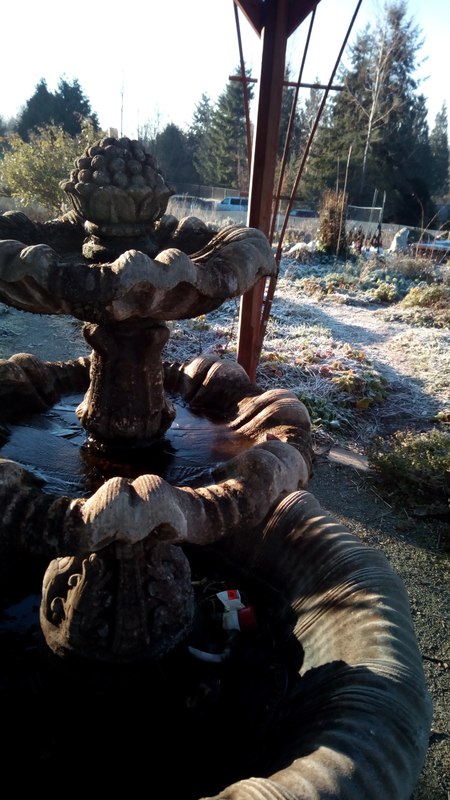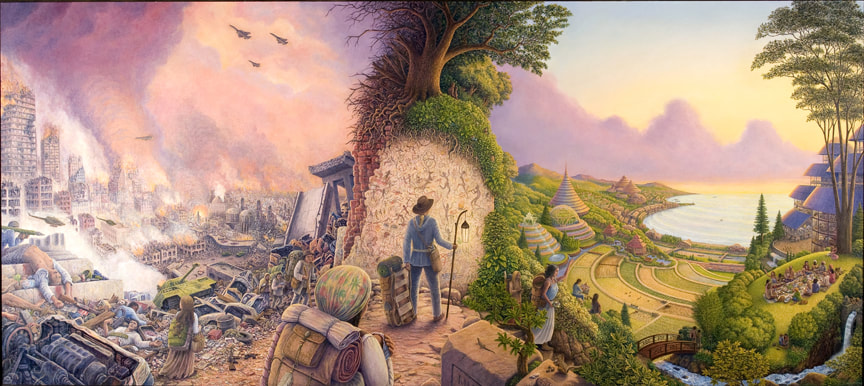Before I dive into this blog post, I’d love for you to pause and answer these questions. Share your answers, or keep them to yourself, but think about it:
Uncertainty. Where is there uncertainty in your life? How do you address it?
I have come to realize very recently that there is a level of uncertainty that I thrive on. I don’t like to know everything that’s going to happen. I find some comfort in leaving space for things to happen that wouldn’t if I tried to control everything. I think this drives some people crazy. I come off as naive, tromping forth with a reckless faith that I’ll land butter-side-up.
Over the past few months, I’ve felt like I am learning a new language. It’s one I can translate when I’m listening, but can’t yet speak fluently, and certainly can’t understand how to completely live into its message. It’s one that lights a fire in my belly and leaves me barreling, falling, tumbling forward with seemingly naive trust in my intuition. It’s terrifying.
It’s terrifying because we are taught to take measured action. If we do this set of things, we will likely get this desired outcome. I wholeheartedly believed this for many years. And you’d think that more planning, more certainty would ease stress, not create it. The truth is that those years, those moments that I’ve fallen into this attitude of control have been the most unhappy times for me. I would lie awake at night, trying to plan what I could do to get my desired outcome. What do I need to do to raise Olive the “right” way? What do I need to do to make my body look how it “should”? How do I make myself happy? How do I “fix” myself? Anxiety and depression tore through me, and I viewed that as yet another thing I needed to control. We are taught to plan, but not to listen.
There is a story here that I need to tell. That’s been lying dormant, and now begs to be told. Until this point, the story was buried in layers of shame, of regret, and a bit of denial. I had no compassion for myself, and no understanding of the source of this pain. I’m still working through it, and I imagine I’ll continue to work on it my whole life, in different ways. But for now, the story up to this point wants to be told. I will oblige.
For years I struggled with an eating disorder. Rather, I should say, for years I have been struggling with an eating disorder. I'd like to say I'm past it, but like depression, I don’t think it’s really something you completely recover from. It no longer consumes my every thought, but it shows up still from time to time. There’s a voice in my head that still says “you don’t have an eating disorder”, because how it manifests doesn’t fit into any classical model of disordered eating. The voice also says “you’re past this. This is something you dealt with in high school, certainly you’re over it by now”. The voice is loudest when it says “you need to control this better.”
In all honesty, up until a couple months ago, I did feel like I was past it. Or at least I had it under a level of control that fit into the life I had been living for the past couple years. But right around when the internship was ending in mid-October, the disordered thoughts started creeping back in around the edges of my day. I was in denial about it at first. And then I was frustrated. And then I was furious. I was past this. I had “fixed” myself. It was under control.
Up until a couple weeks ago, I still saw this as something I needed to control. I saw the overeating, the starving myself, the body dysmorphia as symptoms of the eating disorder. And the eating disorder as something I needed to “fix” about myself. Something that was innately “wrong” with me. I did not consider that maybe the eating disorder was a coping mechanism I was utilizing to deal with some greater “wrong-ness” in the world.
We are living in increasingly uncertain times. If we take measured action, we may not get the desired result we’ve come to expect. If we go to school, we still may not get the job we need to pay our bills, pay off our loans and feed our family, let alone the job that feeds our soul. If we change our lifestyles, recycle diligently, get electric cars, and switch to the “paperless” option, it will not be enough to curb the disastrous effects of a changing global climate. This story of societally accepted “measured actions” no longer holds weight to deliver the “desired result”. It’s a story that is changing. And that feels an awful lot like falling apart. How do we step into this space of such uncertainty?
One early morning two weeks ago I was lying awake. In the days prior I had been feeling stuck. I was toying with the idea that this disordered eating, this thing that was “wrong” with me, was actually a coping mechanism to deal with some other “wrongness” in the world. That it was a way I was dealing with a lack of something that would truly feed me. On this early November morning two weeks ago I had cascading series of realizations that I still don’t think I have fully digested.
The pattern in the realizations was this: preceding each period of time in my life when this disordered way of thinking reared its head, was an instance of loss or breakdown of community or meaningful connection. That morning each of these realizations hit me in succession, until I was left weeping for and holding that 12-year-old Anita who was eating ice cream in tears after her parents divorced. That 15-year-old Anita who was coping with moving away from all of her friends. That 17-year-old Anita that was starving herself to fix what was “wrong” with her, so she could belong. That 20-year-old Anita who felt so very isolated as a young mother. The story I had been telling myself shattered, and I held 26-year-old Anita and cried. I held myself with true compassion for possibly the first time.
I had been using food, or the lack thereof, to keep from fully experiencing the grief of these losses. These losses that shot me into a space of intense uncertainty, where I felt I had no control. Eating to feel false certainty, starving to feel false control.
Over dinner last week, I asked a group of folks at Songaia what role uncertainty plays in their lives. Among many points that were made, Brian brought up that uncertainty is an “edge” between stories. And that, in permaculture, the edge is such a highly regarded space because it’s where the the most valuable, productive, and diverse changes occur. This has been reflected in my own life. The times in my life when I have been able to approach uncertainty without an attitude of control have absolutely been the happiest and most fruitful times of my life. When I was able to listen instead of plan. But it definitely feels like learning a new language. I am learning how to step into a space of uncertainty and really let myself feel it. To really listen to the intuition that’s guiding me in that space and let go of the need for control or certainty.
What allows us to step into the productive space of uncertainty? Especially in such uncertain times, how do we value and use this edge? One of the conclusions I drew from the conversation I had with folks over dinner, is that one of the roles community plays is to provide a level of certainty that allows us to step into uncertainty. Understandably then, when I experienced the loss of community in my own life I was propelled out of that space of certainty, and left scrambling for a reasonable facsimile.
But we are living in a culture that largely does not value community. Our systems are not set up to support it. Our social norms are not supportive of fostering intimate friendships. Gone are the days of growing up in a tribe, a clan, a village of people who know you. The structure is gone, but the longing is still there. To be supported. To be held. To be seen.
So what do I do now? With this new knowledge of myself? Of this thing I have been struggling with for over half of my life? I am certain that countless others feel this wrongness. They may cope with it in different ways--using TV or social media or drugs or whatever else to keep from feeling a lack of community or meaningful connection. To feel certainty or control in uncertain times.
So I guess the real question is-- what do we do now? Like the folks here at Songaia have been doing, we rebuild the structure that supports the longing. Like my soul-bud, feather-friend John Joseph Crotty V would say, we need to need each other. So we provide space for others to feel safe stepping into uncertainty. We plant a seed in people passing through our lives, showing them how right it feels to be held and seen. We address feelings that we’re dulling in ourselves. We allow ourselves to be vulnerable. We let ourselves believe that we’re worthy. Rebuilding community doesn’t start at the community level, it starts at the individual level.
Revisiting that question I asked earlier...where is there uncertainty in your life? How do you address it?
To the Songaian community: Thank you for reading. I can’t tell you how I’ve fallen in love with you all. Thanks to you, I feel held. I feel supported and I feel seen. I can’t wait to get to know each of you better on an individual level. Come have lunch or tea with me in the common house after the new year and we’ll dream and scheme. I’ll be around on many weekdays.



 RSS Feed
RSS Feed